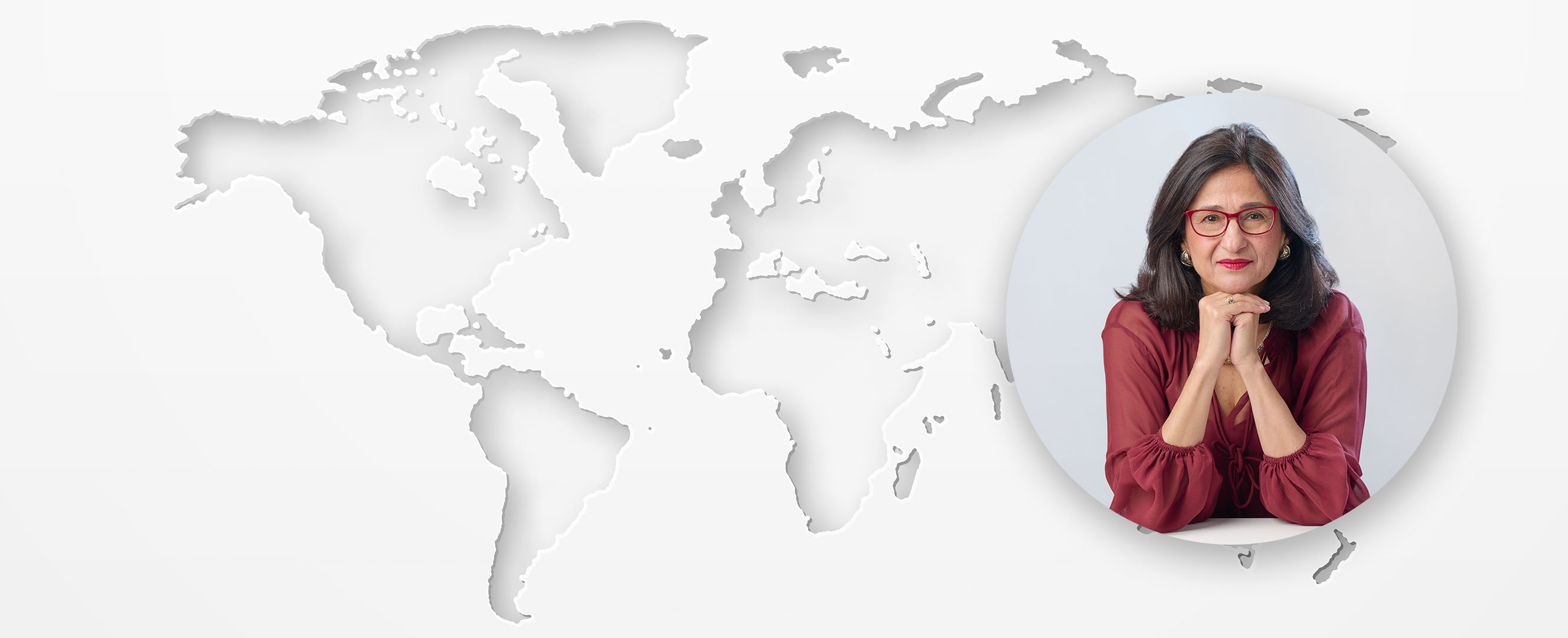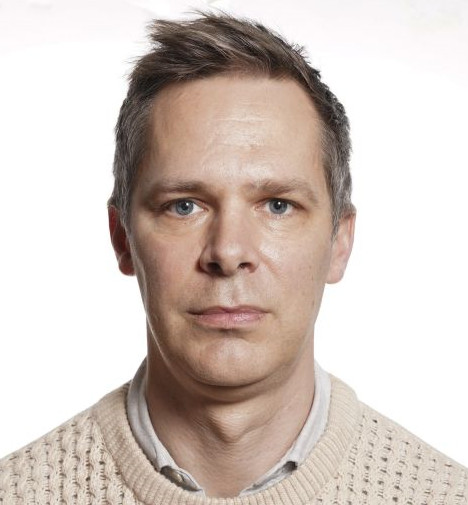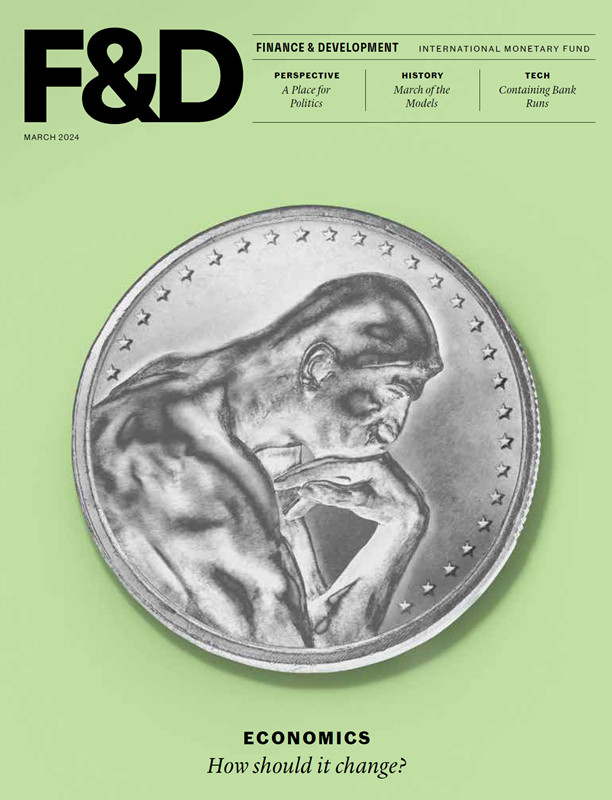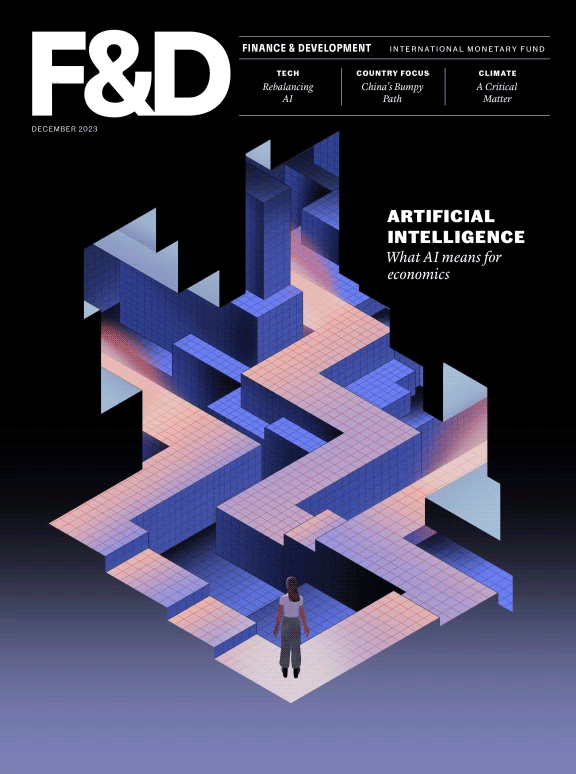Nicholas Owen profiles Columbia’s Minouche Shafik, whose career spans international development, central banking, and writing on the social contract
It’s not luck that economist Minouche Shafik played a key role in pivotal international developments of the past three decades. And she is still at it.
As a freshly minted Oxford economics PhD, she worked on Eastern Europe at the World Bank after the 1989 fall of the Berlin Wall. During the Make Poverty History campaign of the mid-2000s, she led the UK government’s influential Department for International Development.
At the International Monetary Fund during the 2009–10 euro area debt crisis, she oversaw the Fund’s work on several countries at the epicenter of the upheaval. During the Arab Spring pro-democracy protests of the early 2010s, Shafik ran the IMF’s programs in the Middle East. She was deputy governor of the Bank of England, overseeing a $500 billion balance sheet, during the turmoil of Britain’s Brexit vote.
Now, at the age of 60, she’s the first female president of New York’s Columbia University, following six years at the helm of the London School of Economics and Political Science (LSE). It’s an unusual economist whose career encompasses national policymaking, international financial institutions, central banking, and top academic leadership. Her honors include being named a baroness in the House of Lords and a dame for services to the world economy, as well as election to a fellowship of the British Academy.
Born in Egypt and reared in the US South, Shafik brings to the table a rare combination of tough-mindedness, high intellect, courage, and an aptitude for swaying policymakers, according to those who know her.
As a young economist, Shafik stood out for her ability to combine intellect with exceptional empathy and political intelligence, says Andrew Steer, who is now president and chief executive of the Bezos Earth Fund. In 1992 he recruited her to work with his World Bank development report team. “You don’t persuade governments to change policy just by doing good analysis,” he says.
“You do it by being smart politically and trying to get inside their heads and see things through their eyes,” Steer says. “Minouche is exceedingly good at that.” Shafik went on to become the World Bank’s youngest-ever vice president, at the age of 36.
Christine Lagarde, the president of the European Central Bank and a former IMF managing director, cites her attentive and inclusive leadership style. They worked together for three years in the early 2010s when Shafik was one of Lagarde’s deputy managing directors.
“Minouche is a subtle mixture of the orient and the occident; she is as Egyptian as she is European as she is British as she is American,” Lagarde says. “She supports other people, especially women, when they deserve it. She does not suffer fools gladly but will give everyone a chance.”
In her 2021 book, What We Owe Each Other, Shafik issues a call for a new social contract that takes into account the demographic and technological changes transforming society. She proposes a stronger “architecture of security and opportunity” by sharing risks and investing in people. “We need to get to a different place, where we’re asking more of people and investing more in them,” she says. That means constructing a floor below which income cannot fall combined with incentives to work, portable pensions linked to life expectancy, lifelong education and retraining, and intervention in early childhood to equalize opportunity.
As the leader of one of the world’s top universities, Shafik says she worries that cancel culture threatens to stifle the kind of free-thinking debate that enriches student life. “The point of university is to be intellectually challenged and confronted with difference,” Shafik says. She advocates free speech within the law. She says she is proud that at the prestigious LSE, no one was barred from speaking because of views that some might consider offensive.
At the same time, Shafik says she is concerned that as societies, we have lost some of our ability to disagree civilly. Universities must teach people to have difficult conversations, she says. “It’s through that process of listening that you learn, you build consensus, and you move forward as a community,” she says.
In 1966, when she was four years old, Shafik and her family fled President Gamal Abdel Nasser’s Egypt for the United States, settling first in Savannah, Georgia, deep in the American South. Only her father, a scientist whose property had been nationalized by the Egyptian general’s government, spoke any English. Her mother checked the mailbox each morning and cried, waiting for news from home.
The family soon learned the language and found their footing after a kindly neighbor advised Shafik’s mother to host paddling pool parties for local children as a way of making friends. The experience instilled in Shafik a lasting interest in social mobility and what determines where you start and end in life. “My family experienced social mobility both downwards and upwards,” she says.
Great tumult
Shafik’s childhood was a time of great social and political turmoil in America: the Vietnam War, the Civil Rights Movement, and Watergate. Shafik lost count of the number of schools she was bused to in Georgia, North Carolina, and Florida as the family moved and as the authorities tried to balance the numbers of Black and white students in the classroom.
“All of those things shaped my interest in politics, policy, international relations, and fairness,” she says. “They were big influences on what I chose to do afterward.”
After a spell back in Egypt as a teenager, she earned an undergraduate degree in economics and politics from the University of Massachusetts, Amherst. She took a master’s in economics from the LSE and a doctorate in economics from Oxford.
Nicholas Stern, chair of the LSE’s Grantham Research Institute and a noted climate economist, says he remembers meeting Shafik as a master’s student in the mid-1980s. Back then, Stern and Shafik were among a delegation of teachers and students to meet Princess Anne, chancellor of the University of London. Some 35 years later they met the princess again. Stern notes the striking contrast in mobility: “Minouche has gone from student to president, but I am still a professor, and Her Royal Highness is still a princess.”
Shafik spent much of her professional life in London and Washington. She married her husband, scientist Raffael Jovine, in 2002 in Washington, had twins, and became stepmother to his three children—all in a single sleepless year. To this day she makes frequent visits to Egypt, home to her mother and a large extended family. It’s a source of frustration for Shafik that the Middle East is less successful than it could be because of bad politics and misguided economic policies combined with internal conflicts and outside interventions.
At the World Bank in the 1990s, Shafik traveled to the Middle East often during the Oslo peace process between Israel and Yasser Arafat’s Palestine Liberation Organization. She wrote a two-volume book about the possibilities for economic cooperation. In the 2010s she was a deputy managing director of the IMF as the Arab Spring protests swept the region.
“Both times started with great optimism and ended in disappointment,” Shafik says. The peace process collapsed after a right-wing extremist assassinated Israeli Prime Minister Yitzhak Rabin. The Arab Spring’s democratic aspirations soured amid counterrevolutions and civil wars.
Appeals for better leaders are common in the Middle East. For Shafik, the region’s best hope for a more prosperous future is to reverse a steady decline in the independence of parliaments, the courts, central banks, civil society, and a free press. “What really matters in the long run for the region’s prospects are strong institutions,” she says. “The institutions that make sure whatever kind of leadership you have works in the public interest.”
Yet she voices confidence in the Middle East’s young people, its extraordinary history, and its enormous potential, pointing out that when countries have pursued sensible policies they have prospered. “The laws of economics apply in the Middle East and North Africa just like they apply everywhere,” she says.
Landmark legislation
Shafik spent seven years at the UK’s Department for International Development, known as DFID. In 2008 she became permanent secretary, the department’s most senior civil servant, and oversaw legislation that enshrined into law a commitment to spend at least 0.7 percent of gross national income on official development assistance. That worked out to an annual budget of about $20 billion.
“We were incredibly proud at that time,” she says, “because DFID was providing not just huge resources to development—with a strong focus on the poorest in the world. It was also providing leadership to the whole international system and mobilizing resources from other countries and international organizations.”
Suma Chakrabarti, Shafik’s predecessor as the top DFID official, attributes her leadership success to her understanding of what motivates people and use of that understanding to produce ideas for much-needed reform. She used these skills to bring about change in the developing world and at every institution where she worked, he says.
Masood Ahmed, president of the Center for Global Development, worked alongside Shafik in various roles at the World Bank, the IMF, and DFID. “The most striking thing about her is her humanity and sincerity,” Ahmed says. She also has the ability to deliver tough messages in an inoffensive way, he says. “Her evident empathy enables her to separate the message from the person in a way that’s quite unique.”
Almost a decade after Shafik’s departure from DFID, Prime Minister Boris Johnson folded it into the Foreign Office and watered down the aid commitment. DFID’s success, she says, stemmed from its clarity of purpose: to reduce world poverty. That’s not the case under the Foreign Office, with its geopolitical, trade, and other objectives. “The presence of both the voice and the means that DFID brought to the table is sorely missed in the international system today,” she says.
It’s fair to say that the international system and its institutions are in a tight spot. Aid budgets have been slashed, Russia’s war in Ukraine and geopolitical tensions threaten to cripple multilateral organizations, and rising interest rates are piling pressure on heavily indebted developing economies.
“The external context for international organizations has not been this tough since the Cold War,” Shafik says. She stresses the importance of countries continuing to carve out a space for international cooperation, especially on global public goods like climate, pandemic preparedness, and financial stability. “Having a place where conversations are being had on these global issues is even more important when the bilateral channels are not working well,” she says.
Brexit rancor
Shafik’s three years at the Bank of England coincided with the UK’s 2016 vote to leave the European Union. She says she remembers walking into a fully staffed trading room at 4 in the morning to watch the results and seeing the British pound slide on the screens as Asian markets opened.
The Brexit period was rancorous. The Bank of England’s sober counsel of the self-harm that a leave vote could inflict on the economy led Brexit advocates to accuse the institution of being part of a “Project Fear” conspiracy. Shafik concedes that the bank’s attempts to inform the debate with rigorous economic analysis had only “mixed success.” In the end, she says, the vote was about something much more political.
The bank’s biggest contribution, she reckons, was its contingency planning to maintain macroeconomic and financial stability whatever the political outcome. “When the markets opened in London, we were able to say that we had liquidity facilities in place should any institution need them,” Shafik says. “And because we had prepared and were able to reassure the markets, no support was needed.”
Shafik left the Bank of England in 2017 for academia. It was during her time as LSE president—at the height of COVID—that Shafik wrote What We Owe Each Other, her call for a rethinking of the social contract. Would she write the book any differently today? The only change, she says, would be to add a chapter on the international social contract and how to strengthen it.
Many were surprised that someone who spent so much of her life at international financial institutions should write a book about national social policies. But Shafik says she reckons people will support a more cooperative global system only if their national social contract is just.
“People have to believe that they’re in a society in which the architecture of opportunity is fair,” she says, “and that will make them more generous towards citizens of other countries.”
Opinions expressed in articles and other materials are those of the authors; they do not necessarily reflect IMF policy.









